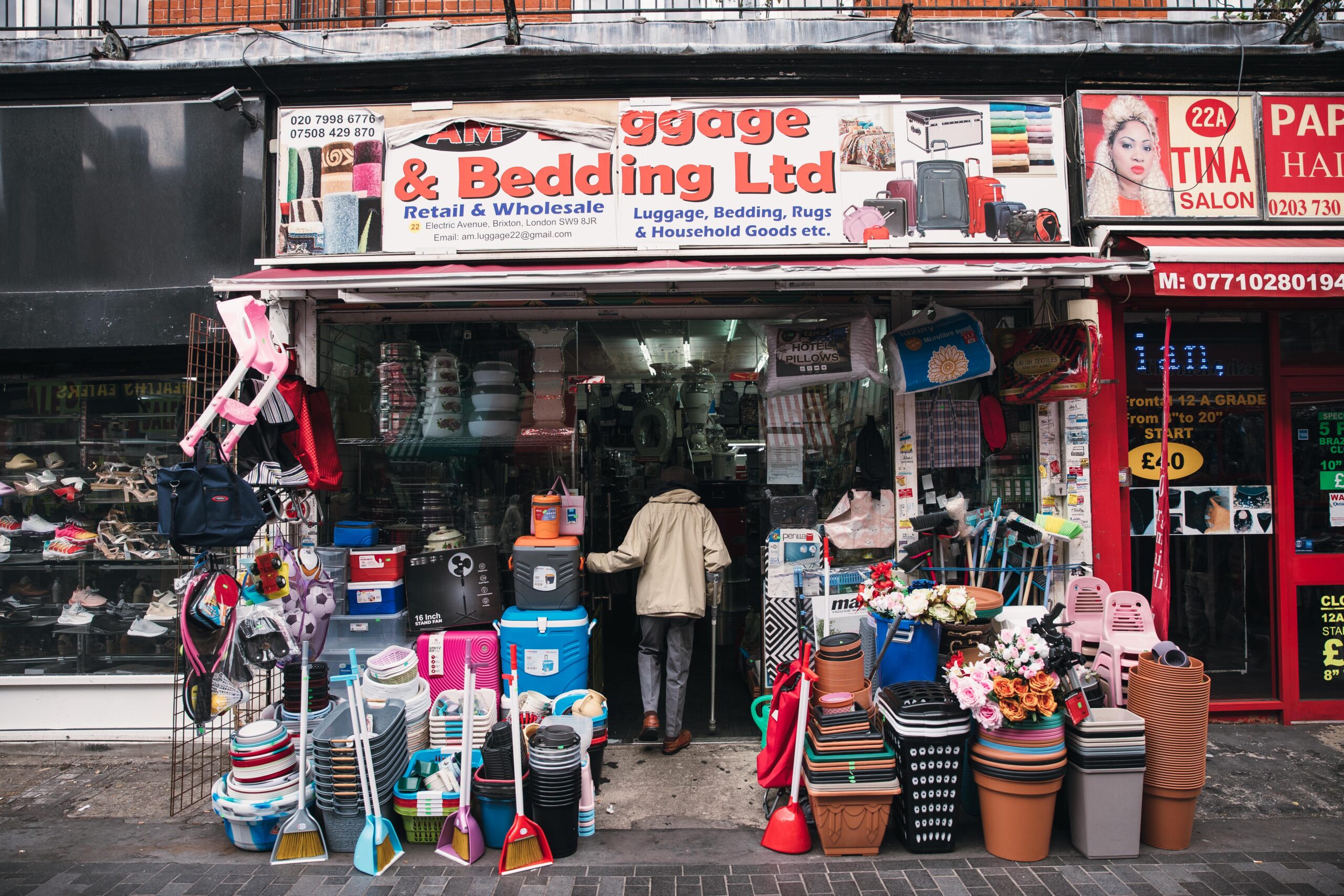How do our homes shape our health?
Our health is shaped by the world around us: our jobs, the money in our pockets, our homes. Having somewhere safe and secure that we can call home is essential to support our health and wellbeing. We all need a place to eat, sleep, rest, and spend time with friends and loved ones. When our homes are unsafe through disrepair or damp, or we face the stress of rising housing costs or the potential of losing our home altogether, these all have a direct impact on our health.
This explainer, informed by evidence from Health Equals members Crisis, Food Foundation, Global Action Plan, People’s Health Trust, and Shelter, will look at the ways in which our homes shape our health.
How our homes shape our health
Affordable, warm, stable and safe housing is a cornerstone of good health and should be available to all of us. But right now, millions of people in the UK are living in homes that are undermining their health.
In England, one in three (7.7 million) households experience at least one housing problem and of these, around one million households experience multiple housing problems, including unaffordable costs, poor quality homes, and overcrowding. In 2023, over 310,000 children in overcrowded homes in England have no other option but to share a bed with parents or siblings.
Affordable, warm, stable and safe housing is a cornerstone of good health and should be available to all of us.
The quality of our housing matters
People living in non-decent homes (defined as homes with a hazard posing an immediate threat to a person’s health, not in a reasonable state of repair, lacking modern facilities or not effectively insulated or heated) are more likely to experience poor health. Almost one million people in England are living in cold or damp homes. In 2018 there were almost 2 million people living without a cooker; 2.8 million without a freezer; and 900,000 without a fridge. These issues have further knock-on effects – living without a cooker and relying on microwave meals is twice as expensive as making home-cooked meals. Having less money to spend on essentials like heating means people are less likely to open windows or pay for ventilation, increasing the risk of mould and damp, and the harmful effects of indoor air pollution.
Many of us simply can’t afford our housing costs
As well as the chronic stress of high and rising costs, spending a large proportion of our income on housing leaves us with less money to spend on other essentials such as nutritious food. In 2019, 29% of private renters spent more than a third of their income on housing costs, compared with 10% of social renters and 3% of owner-occupiers. Recent increases to interest rates are likely to raise the proportion of income spent on housing by people with a mortgage.
Due to a lack of affordable or social housing, thousands of people are living in temporary accommodation or are rough sleeping.
Due to a lack of affordable or social housing, thousands of people are living in temporary accommodation or are rough sleeping. There are 94,870 households in temporary accommodation in England and 14,458 in Scotland. Temporary accommodation can have significant physical and emotional implications, especially for children, whose social and physical development is impacted by issues such as living in crowded accommodation. The All-Party Parliamentary Group (APPG) on temporary accommodation collected evidence on people’s experiences of temporary accommodation, which included mental distress, trauma, feeling unsafe, mould and damp, and lack of basic household necessities such as cooking appliances. Shelter found that two-thirds of families in temporary accommodation have been there for more than 12 months, and some for more than 10 years.
Too many people don’t have anywhere to call ‘home’
Official government statistics from UK and devolved administrations show there are over 5,000 people sleeping rough. However, many people experiencing homelessness sleep in homeless shelters, or ‘couch surf’, meaning the real figures are likely much higher. These conditions place extreme strain on an individual’s health, with one study showing that people aged 38-74 living in one 42-bed London hostel had on average seven health conditions, and were as frail as people in their late 80s. The average age of death for people who have ‘homelessness’ recorded on their death certificate is just 43 years for females and 45 years for males.
How policy shapes our health
There are not enough affordable homes, and this is an issue across the UK. Crisis commissioned research by Heriot-Watt University in 2019 that found to meet the housing needs of everyone in England, the country needs to build 340,000 homes every year until 2031 – 40,000 more than the government’s current target. 145,000 of the 340,000 built each year would need to be affordable homes. In 2021-22 only 59,175 affordable homes were built.
The Scottish Government has committed to building a total of 110,000 affordable homes by 2032 with 70% available for social rent. In 2022, a total of 9,727 homes were completed. To meet their 10-year target, they would need to complete an average of 11,000 homes every year.
With fewer of us being able to buy a home or access social housing, the need for private rented homes has increased. In turn, with greater demand, rent prices have increased, with annual private rents increasing by 4.7% in England, 4.8% in Wales and 5.2% in Scotland in the 12 months to April 2023. This is the largest increase since the measure was introduced in 2016. Wages and Local Housing Allowance have not kept up with these rising costs.
With fewer of us being able to buy a home or access social housing, the need for private rented homes has increased. In turn, with greater demand, rent prices have increased.
Some policies have been put in place to prevent the impacts of rent increases such as the social housing rent cap introduced by the UK Government in August 2022 which was set at 7%. While this minimised the impacts of rising rent costs, it sits below average wage growth. The Scottish Government introduced in the private sector a temporary rent cap between September 2022–2023 to prevent increases above 3%. This is a temporary measure and despite the cap, rents have increased above inflation during the same time period.
Decision makers have the power to protect our health. The UK Government announced ‘Awaab’s Law’ in February 2023 in response to the death of two-year-old Awaab Ishak, which was linked to damp and mould growth in his family’s social rented home. The new law means that landlords will have to investigate hazards and make repairs in a set timeline for social tenants, however the law does not protect tenants who rent privately.
How we can improve things
Being able to afford a good quality home means having enough money in our pockets to pay the rent or get a mortgage. It means having secure jobs that pay enough to meet our needs and having support from a social security system that keeps up with the cost of living, including housing costs. Having enough income to heat or cool our homes is important, but so is ensuring our homes are built to be energy efficient – which also means making urgent improvements to existing homes.
Research commissioned by Crisis shows that we need to build 90,000 social homes each year for the next 15 years to ensure everyone can access affordable housing.
We need politicians to step up. We need to build more social homes. Shelter found there are over 1 million households waiting for social housing, and are calling for the government to build more social homes and protect and improve the current social housing stock. Research conducted by Heriot-Watt and commissioned by Crisis shows that we need to build 90,000 social homes each year for the next 15 years to ensure everyone can access affordable housing.
We also need security. The UK Government has introduced the Renters Reform Bill that, if passed, will ban Section 21 notices, which allow landlords to serve a ‘no-fault’ eviction. This means a person may have to leave their home with two months’ notice without the landlord having to provide a reason. Being evicted by Section 21 notice has been cited as a cause of stress and health issues for tenants.
Measures missing from the Renters Reform Bill include making it illegal for landlords and agents to refuse to rent homes to people who receive benefits. This would give local authorities more power to protect renters’ rights, and strengthen councils’ enforcement powers. To go further still, we should make sure that private housing meets the same quality standards expected of social housing, through legislating for the Decent Homes Standard.
All of us need a safe, warm, and affordable home to stay healthy – but so many of us don’t have one. Taking action now will start to put this right so we can live healthier, longer lives.


